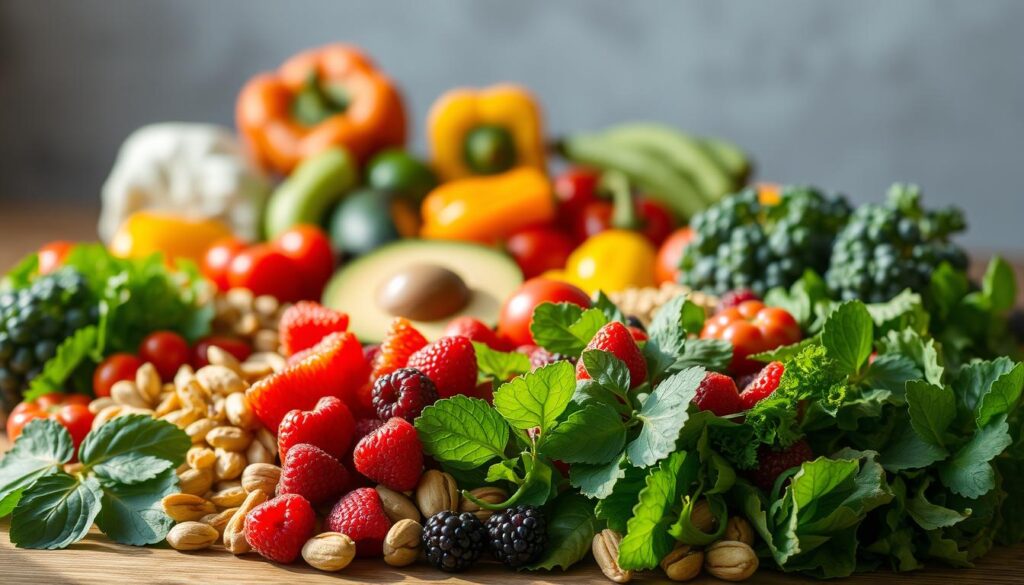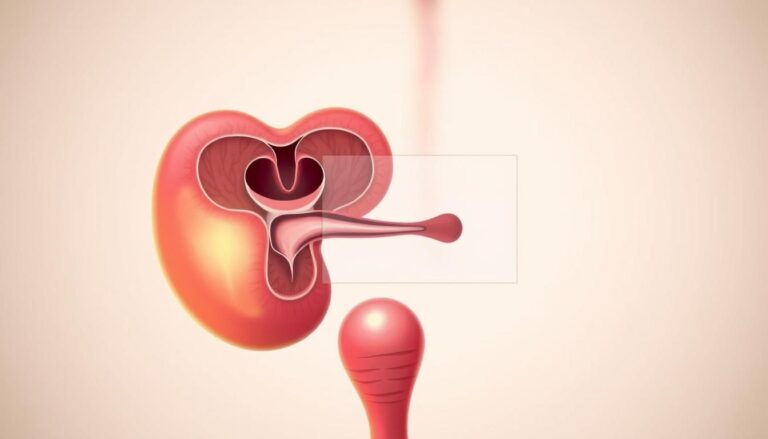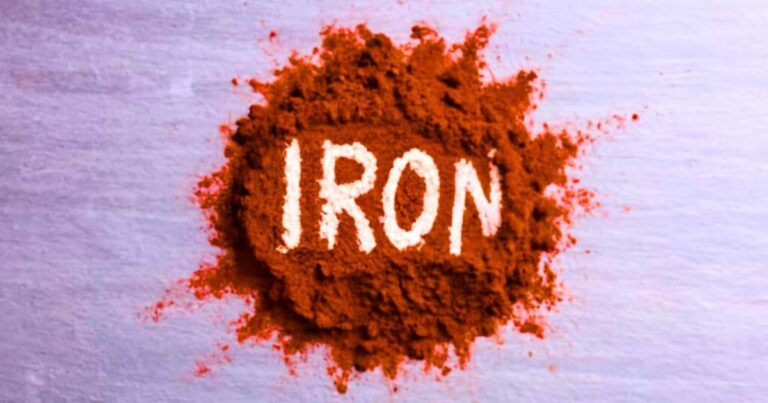What if your next meal could be your best defense against America’s leading killer?
With over 103 million adults battling high blood pressure and cardiovascular issues claiming lives daily the power to protect your most vital organ might already be on your plate.
Research confirms that nutritional choices directly impact cardiovascular risks from cholesterol levels to arterial inflammation. The American Heart Association emphasizes that simple dietary changes can dramatically alter health outcomes.
Yet many remain unaware of which ingredients offer the strongest shield against life threatening conditions.
This guide cuts through the confusion, revealing science backed strategies to transform everyday eating habits. Discover how specific nutrients combat oxidative stress improve blood flow, and strengthen cardiac function. Learn to identify unexpected allies in your grocery aisle that work harder than you might imagine.
Key Takeaways
- Diet directly impacts four major cardiovascular risk factors
- Certain nutrients outperform others in supporting arterial health
- Regular consumption patterns matter more than occasional “superfoods”
- Practical meal adjustments can yield measurable improvements
- Multiple food groups contribute unique protective benefits
Arm yourself with knowledge that turns every bite into an opportunity for prevention. The following insights from leading dietitians and clinical studies will help you build meals that actively care for your cardiovascular system.
Understanding Heart Disease and the Role of Diet
Your plate holds more power over your heart’s future than you might realize. Cardiovascular conditions like coronary artery disease develop when arteries narrow often due to lifestyle factors. What we eat directly affects four critical markers blood pressure cholesterol triglycerides, and inflammation levels.

Research shows nutritional choices can slash cardiovascular risks by nearly a third. A UC Davis Health report states:
Daily meals influence cardiac wellness as much as exercise habits.
Processed items loaded with sugar and saturated fats fuel modern health crises while whole foods act as natural defenders.
Key diet-controlled factors include:
- LDL bad cholesterol reduction
- Healthy blood pressure maintenance
- Inflammation reduction through antioxidants
Chronic inflammation from poor eating damages blood vessels over time. This damage increases risks for serious cardiovascular events. Simple swaps like choosing olive oil over butter create measurable improvements within weeks.
Understanding these connections turns grocery shopping into preventive care. Every meal becomes an opportunity to support arterial flexibility and optimal blood flow. With heart conditions affecting 1 in 3 Americans informed eating proves more crucial than ever.
Nutritional Benefits of Heart Healthy Ingredients
The right ingredients act like precision tools for cardiovascular support. Specific compounds target biological processes that influence circulation and vascular resilience. Unlike temporary fixes these nutrients create lasting benefits through daily consumption patterns.

Impact on Blood Pressure and Cholesterol
Leafy greens contain dietary nitrates that relax blood vessels. This natural process improves arterial flexibility, easing strain on the cardiovascular system. Studies show consistent intake can lower systolic pressure by 4-10 mmHg.
Potassium-rich options like bananas and sweet potatoes counterbalance sodium’s effects. A Harvard review notes:
For every 1,000mg potassium increase, stroke risk drops 11%.
Simultaneously, soluble fiber in oats binds to cholesterol particles, reducing absorption.
Antioxidant Rich Foods and Inflammation Reduction
Berries and dark chocolate deliver flavonoids that neutralize cell-damaging free radicals. These antioxidants reduce oxidative stress linked to hardened arteries. Regular consumption helps maintain healthy blood flow by preventing plaque buildup.
Omega-3s from walnuts and flaxseeds offer dual action. They lower inflammatory markers while improving triglyceride levels. Combined with whole food nutrition these components form a robust defense against modern dietary threats.
Incorporating Fruits and Vegetables Into Your Diet
Nature’s simplest offerings pack a powerful punch for vascular health. Studies show people consuming 5+ daily servings of fruits vegetables lower cardiovascular risk by 20% compared to those eating fewer than three. This protection stems from unique nutrient combinations found only in plant-based foods.

Green Powerhouses for Vascular Support
Dark leafy varieties like spinach deliver exceptional vascular benefits. Their high vitamin K content helps regulate calcium deposits in arteries, while natural nitrates improve blood vessel flexibility. A Journal of Nutrition study found:
Daily spinach consumption reduces arterial stiffness by 12% in just seven days.
Kale and collard greens offer similar advantages making them versatile additions to salads, smoothies, or cooked dishes.
Berry Defense Against Oxidative Stress
Vibrant berries provide anthocyanins pigments that combat cellular damage. These antioxidants lower inflammation markers linked to narrowed arteries. Research indicates adults eating 1-2 cups weekly experience:
- 11% reduction in coronary risk
- Improved blood pressure readings
- Enhanced blood vessel dilation
Frozen varieties retain 90% of nutrients, offering year-round access to these protective fruits. Pair them with Greek yogurt or oatmeal for maximum absorption.
Whole Grains and Their Heart Protective Properties
Modern grocery shelves overflow with grain products but not all offer equal benefits. Unlike refined carbs stripped of nutrients intact grains retain their natural armor of fiber and antioxidants. This nutritional completeness makes them essential allies for maintaining cardiovascular wellness.
| Grain Type | Key Nutrient | Cardiovascular Benefit |
|---|---|---|
| Oats | Beta-glucan fiber | Lowers LDL cholesterol |
| Quinoa | Magnesium | Supports blood pressure control |
| Brown Rice | Lignans | Reduces arterial inflammation |
Clinical trials reveal remarkable impacts from modest dietary shifts. A Journal of the American College of Cardiology study states:
Replacing refined grains with whole varieties decreases coronary disease risk by 18% within six months.
Identifying True Whole Grain Options
Many products masquerade as healthy choices. Authentic options list whole grain or whole wheat as the first ingredient. Watch for these reliable sources:
- 100% whole grain bread
- Steel-cut oats
- Unprocessed barley
Regular consumption improves multiple health markers simultaneously. The soluble fiber binds to cholesterol, while antioxidants combat cellular stress. Together these actions create layered protection against modern dietary threats.
Essential Foods That Help Prevent Heart Disease
The ocean’s bounty delivers more than just flavor it offers vital protection for your cardiovascular system. Specific marine proteins and plant-derived oils contain compounds that actively combat multiple risk factors simultaneously.

Marine Superheroes: Fatty Fish Advantages
Cold-water swimmers like salmon and sardines contain omega-3 fatty acids that outperform most land-based nutrients. These essential fats improve arterial flexibility while reducing dangerous triglyceride levels. Research shows weekly consumption decreases irregular heartbeat risks by 29%.
A Johns Hopkins meta-analysis confirms:
Two fish meals weekly lower cardiac mortality rates more effectively than statins alone.
For non-fish eaters high concentration supplements provide comparable benefits.
The Great Fat Transformation
Not all lipids behave the same in your body. Unsaturated fats from avocados and olives actively clear arterial plaque, while saturated varieties from red meat accelerate cholesterol buildup. This critical distinction explains why Mediterranean diets prove so effective.
Simple swaps create dramatic changes:
- Use olive oil instead of butter for cooking
- Choose walnuts over cheese snacks
- Opt for grilled fish instead of fried meats
These adjustments help maintain healthy blood viscosity and vessel elasticity. Combined with regular fish consumption, they form a powerful defense against modern dietary threats.
Diverse Protein Sources for a Healthy Heart
Did you know your protein choices could be quietly shaping your cardiovascular destiny? Emerging research reveals that protein sources influence arterial health as much as fat intake. While all proteins build muscle, their long-term effects on circulation vary dramatically.
Plant Power vs. Animal Proteins
A landmark Harvard study found:
Replacing one daily serving of red meat with nuts lowers heart disease risk by 30%.
This stark contrast highlights why nutritionists prioritize plant-based options. Lentils and beans deliver fiber alongside protein, creating dual benefits for blood pressure and cholesterol.
| Protein Type | Benefits | Considerations |
|---|---|---|
| Fatty Fish | Omega-3s reduce inflammation | Choose wild-caught 2x weekly |
| Greek Yogurt | Calcium + probiotics | Opt for non-fat versions |
| Skinless Poultry | Lean complete protein | Limit to 3oz portions |
While fish remains the optimal animal source, preparation matters. Grilled salmon outperforms fried cod in protecting vascular function. For dairy products, fermentation enhances their heart-protective properties – kefir and yogurt show stronger benefits than milk.
Practical shifts make lasting impacts. Try black bean burgers instead of beef patties, or snack on almonds rather than pepperoni. These swaps reduce saturated fat while increasing protective nutrients.
The Power of Nuts Seeds and Legumes
Small dietary additions can yield outsized cardiovascular rewards. A handful of nuts or a sprinkle of seeds delivers concentrated nutrition that actively combats multiple risk factors. These compact powerhouses work through three key mechanisms: improving cholesterol profiles, reducing inflammation, and enhancing blood vessel function.
Nutrient Density in Everyday Snacks
Walnuts and almonds lead the charge with unique fat profiles. Walnuts contain more omega-3s than any other tree nut, while almonds provide 37% of your daily vitamin E in just one ounce. A New England Journal of Medicine study reveals:
Consuming ¼ cup daily lowers heart disease risk by 29% compared to rare nut eaters.
Beans add plant-based protein that stabilizes blood sugar. Lentils deliver 15g of fiber per cooked cup – nearly half the daily recommendation.
Fiber’s Double Defense Strategy
Legumes and seeds form a dynamic duo against LDL cholesterol. Soluble fiber binds to bile acids, forcing the liver to use circulating cholesterol for replacement. Chia and flaxseeds expand this benefit with lignans that improve arterial flexibility.
- 1 oz chia seeds = 10g fiber
- ½ cup black beans = 7.5g protein
- Walnuts = 2.5g omega-3s per serving
Practical integration proves simple: blend flax into smoothies, top salads with slivered almonds, or swap croutons for roasted chickpeas. Consistent consumption patterns magnify these protective effects over time.
Smart Cooking Oils for Cardiovascular Health
Your skillet’s contents might influence your cardiovascular future more than you realize. The right liquid plant oils act as silent guardians, while certain solid fats accelerate plaque formation. This critical distinction transforms ordinary cooking into preventive care.
Liquid Gold Versus Solid Threats
Oils from peanuts, walnuts, and flaxseeds contain unsaturated fats that scrub arteries clean. These liquids remain flowable at room temperature – just like they keep blood moving smoothly. Hard fats like butter and lard contain compounds that stiffen vessels over time.
Smoke Points Meet Antioxidant Power
Avocado oil withstands 520°F heat without breaking down – perfect for searing salmon. Olive varieties shine in dressings with polyphenols that relax blood vessels. Studies show daily use lowers pressure readings by 3-5 mmHg within weeks.
Swapping just two tablespoons of butter for these oils daily reduces LDL cholesterol by 8%. Your heart beats easier when every sauté and bake becomes an act of protection.





